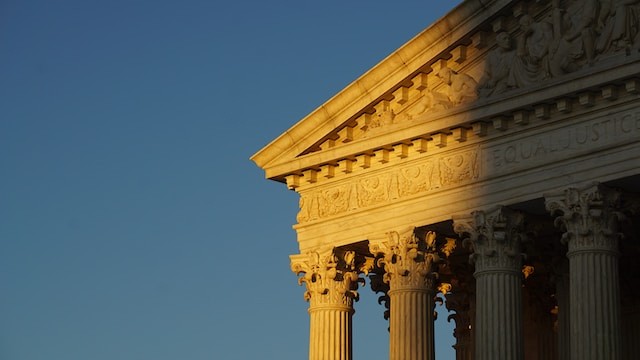
In an interesting legal turn of events, the conservative justices of the U.S. Supreme Court have begun to question how the Securities and Exchange Commission (SEC) enforces investor-protection laws in its internal proceedings. This scenario offers the courtroom to constrain the power of federal agencies further.
The court, leaning 6-3 towards a conservative majority, has been tasked with hearing out an appeal presented by President Joe Biden's administration. They are arguing against a prior lower court ruling that marked the SEC's tribunal proceedings - a process conducted by administrative judges appointed by the SEC that can lead to financial penalties for violations - as unconstitutional.
Challenge Raised Against the SEC's System
The conservative justices' attention was caught by a part of the 2022 decision made by the 5th U.S. Circuit Court of Appeals. This spokesperson of courts out of New Orleans concluded that the SEC's in-house workings might be infringing on the Seventh Amendment's right to a jury trial.
The challenge against the SEC system was heralded by George Jarkesy, a hedge fund manager based in Texas. After receiving a hefty fine and being banned from the industry by the SEC over securities fraud allegations, Jarkesy questioned the legitimacy of the SEC's system.
This lawsuit saw support from several conservative and business groups voicing their grievance on what they consider the overbearing regulatory arm of the "administrative state" in financial regulations, energy, environment, climate policy, and workplace safety.
Questions Raised Over SEC's Administrative Proceedings
A curious observation made by the conservative justices during these discussions was how the SEC conducted administrative proceedings for charges including fraud without a jury. Their tradition was to bring in a jury for similar fraud accusations made in federal courts.
A ruling against the SEC could limit action or delay responses to irregularities carried out by brokers, investment advisors, and others. It could also challenge the enforcement capability of other federal agencies. This possibility, carrying "wide repercussions," was pointed out by Justice Department lawyer Brian Fletcher, who was defending the SEC's system on duty.
Controversies Surrounding the SEC's Expanding Powers
In a mounting defense against the SEC's growing control, the SEC has had to deal with an increasingly skeptical Supreme Court. Critics argue that the SEC's course of conducting trials before its judges rather than before a federal court jury is disproportionally advantageous.
However, Justice Elena Kagan pointed out that Congress had, in the aftermath of the Great Depression and subsequent financial crises, given more power to the SEC to dispute investor fraud efficiently. A few justices implied that the ruling against the SEC, if enacted, would not be all-embracing. For instance, Chief Justice John Roberts seemed open to the idea that specific SEC actions could be pursued in-house, and others may need to be brought to a federal court.
Law and regulation regarding these matters are complex and constantly evolving, with significant potential impacts on consumers and businesses. Are you facing legal challenges related to SEC actions? Reach out now for comprehensive legal advice and assistance navigating these changing waters.




